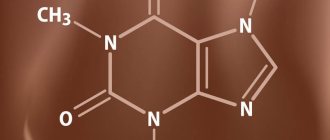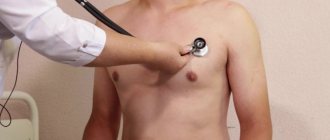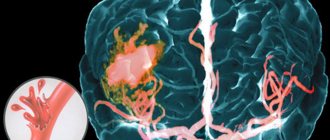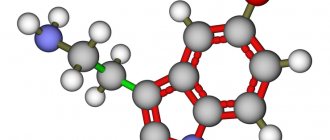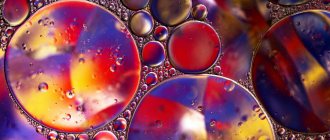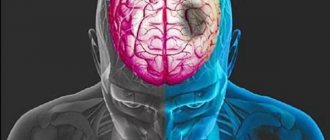The effect of cognac on the human body has been studied by scientists from many countries around the world. Their research revealed the ability of the drink to have a beneficial effect on the human heart and blood vessels.
There are a large number of myths among people that attribute various properties to this type of alcohol.
Drinks containing alcohol prepared using special technology in the French province of Charente can be called cognac. Cognacs produced elsewhere are classified as brandy.
Content:
- The influence of alcohol on indicators
- For hypertension
- At low pressure
- Related factors
- Possible consequences
- Compatibility of alcohol and antihypertensive drugs
- How to stop a rise
The most frequently asked questions to narcologists are whether alcohol increases or decreases blood pressure, and how alcohol affects existing hypertension or hypotension. The widespread belief that under the influence of ethanol blood vessels dilate, helping to normalize blood pressure, is incorrect. Conducted research and collection of statistical data indicate that in most cases of alcohol dependence, hypertension is diagnosed. A trend is also observed in people who regularly drink alcoholic beverages.
Cognac addiction
Regular consumption of cognac, even for medicinal purposes, can cause addiction. At first, a person gradually gets used to the relaxing effect of the aromatic drink, then he simply cannot come to his senses without a glass of cognac. Drinking becomes an obsession; a person begins to drink every day, regardless of work schedule, without waiting until the evening or even in the morning to relieve hangover symptoms. You need to consume more and more alcohol to get the desired effects of intoxication, so your overall health steadily worsens.
You can get rid of alcohol addiction for a certain period of time using a coding procedure - hypnosis or medication. The procedure is quick and painless, but after the encoding period has expired, the addict often returns to the bottle. To get rid of addiction forever, you should undergo comprehensive treatment, which includes medication and psychotherapy - both individual and group.
The influence of alcohol on indicators
To understand the issue, consider the effect of ethanol on blood vessels. In a healthy person, small doses lead to a slight decrease in blood pressure. The effect is due to the toxic effect on the neurons of the vasomotor center of the medulla oblongata, which is responsible for the tone of arteries, veins and capillaries. Temporary relaxation of the vascular walls occurs, thereby increasing the internal lumen. The action is felt as a general relaxation, a spreading of warmth throughout the body.
When drinking a large volume, the opposite reaction develops, causing vasospasm. The vascular lumen sharply narrows, blood flow slows down, accumulating in certain zones, and a sharp increase in indicators is observed. An addict or drinker with a history of hypertension may develop a hypertensive crisis. With systematic abuse, unexpected changes are likely.
Rules for safe use
You can improve your health with the help of cognac only by following the rules for its use.
The drink is drunk:
- in an amount of up to 50 ml per day (the dose is calculated based on the person’s body weight);
- not eating fatty and salty foods (these foods have the ability to retain fluid in the human body, which leads to increased blood pressure);
- in the absence of chronic diseases.
Exceeding the permissible dose of alcohol leads to a deterioration in a person’s health.
For hypertension
In case of illness, alcohol causes jumps up to critical levels. The mechanism is as follows: relaxation is followed by a sharp spasm and the release of stress hormones into the blood. The heart rate accelerates, the organ pumps blood faster, thereby raising blood pressure.
Frequent consumption, especially in large quantities, is strictly contraindicated for hypertensive patients. Changes in blood flow caused by periodic relaxation and spasms worsen the condition of the body. Lack of oxygen and nutrients has a detrimental effect on health.
This is especially noticeable in people suffering from alcoholism, when there is a lack of vitamins and minerals. Not only does the risk of cardiovascular pathologies increase, but also premature wear and tear of the entire system.
How does cognac affect the blood vessels of the heart and brain, what does it do to the blood vessels?
Cognac is a popular alcoholic drink, very strong, with a rich red-brown color and tart aroma. Real cognac is prepared from grapes; this requires a special and special variety of berries (called “Ugni Blanc”), as well as conditions.
Cognac has a lot of alcohols, but at the same time, esters give it a pleasant aroma (they give the drink different “notes”: floral, berry, fruit). Organic acids in cognac make the drink so “hot.” This alcohol is very high in calories and contains up to 250 kcal per 100 ml.
Everyone should afford cognac in small portions. In such quantities it will be beneficial to the body due to the fact that the drink contains a large amount of organic substances. For example, a large amount of tannins will improve the absorption of vitamin C, which means it will improve immunity and help you easily cope with colds.
INTERESTING: A small portion of cognac will improve and speed up all metabolic processes in the body.
If you drink a little cognac every day (about 30 grams, but not more than 70 grams), you will improve the health of your circulatory system. In particular, cognac can reduce blood pressure by dilating blood vessels. In addition, it has a relaxing effect not only on the nervous system, but also on blood vessels (spasm is relieved from blood vessels).
Is drinking cognac healthy?
At low pressure
With hypotension, the walls of blood vessels are dilated and are in a state of decreased tone. Under the influence of small doses of ethyl alcohol, the muscles of the vascular walls relax even more, thereby reducing the pressure of blood flow. The blood supply to the extremities and brain deteriorates, and the ensuing hypoxia causes drowsiness. It is for this reason that a drunk person feels numbness in his legs and dizziness.
Regular drinking leads to increased pressure and even greater stretching of the walls. The accumulation of cholesterol and changes in blood composition provoke the formation of blood clots and atherosclerotic plaques. 5-6 hours after a heavy libation, dehydration of the body occurs, hemoconcentration of the blood increases, that is, its thickening. In this regard, the formation of blood clots and the complete deterioration of blood supply, especially small capillaries, increases.
Can it be used to clean arteries?
What does “cleaning blood vessels” mean? This is a decrease in the level of cholesterol, which can be deposited on the elastic walls, as well as a decrease in the size of atherosclerotic plaques.
Scientists say that drinking any alcoholic beverages slightly reduces cholesterol levels. And those who regularly drink the same cognac in small portions (before dinner) have really “cleaner” blood vessels.
But we should not forget about the negative impact on the liver , which is precisely what takes part in the breakdown of ethyl alcohol derivatives and their subsequent removal from the body. For her, alcohol in any form is a powerful toxin. And even “careful” consumption of cognac (in small portions) will sooner or later provoke liver failure.
Therefore, doctors categorically do not recommend using alcoholic beverages as a medicine to cleanse the circulatory system. An exception is the preparation of various types of cleansing infusions based on them with a very low percentage of alcohol (alcohol in this case acts as a preservative and absorbent element).
It is impossible to “dissolve” atherosclerotic plaques completely. With the help of cognac (like any other alcohol), you can only slightly reduce their size by stimulating the breakdown of lipid compounds (in combination with cholesterol, they form the basis of an atherosclerotic plaque).
Related factors
In addition to the dosage, the patient’s age, existing diseases and even the type of drink are affected. Under the age of 40, changes are practically not felt even after prolonged use. Over 40 and up to 55 years, 67% of people experience symptoms of blood pressure surges. In old age, almost every person who drinks has problems with the functioning of the cardiovascular system.
Existing pathologies of the heart and blood vessels, as well as the kidneys and endocrine system, greatly increase the risk of hypertension with systematic use and the presence of chronic alcoholism . Also, aggravating factors are considered to be a tendency to blood clots, elevated cholesterol levels or diabetes mellitus, intracranial hypertension.
There is an opinion that cognac relieves spasms and normalizes blood flow, but the temporary effect has already been written above. Taking wine in therapeutic doses is also not justified. Even the consumption of a small amount does not go unnoticed and causes damage to health.
It is better not to drink alcohol if you are obese and prone to swelling. This will only make the condition worse.
Contraindications for use in heart disease
Ethanol contributes to the accelerated development of cardiovascular diseases. If you have any of these pathologies, you should be careful about drinking alcohol or stop drinking it altogether:
- arrhythmia - this especially applies to atrial fibrillation in paroxysmal form;
- tachycardia - ethanol has a detrimental effect on the body and causes critical harm, an attack may occur;
- angina pectoris - you need to limit alcohol consumption to 40 ml, choose only a high-quality product;
- heart disease - you can drink only a small amount of dry red wine or cognac, and be responsible for observing the dosage, which is 150 and 40 ml, respectively.
It is recommended to abstain from alcoholic beverages if you have heart failure. If you have recently undergone heart surgery, you should exclude alcohol from your diet for the entire adaptation period.
Possible consequences
Among the heart pathologies caused by systematic abuse, the most common are:
- chronic heart failure;
- alcoholic cardiomyopathy;
- organic and functional myocardial lesions, ischemic heart disease;
- arrhythmias.
The danger is posed by changes caused by prolonged binge drinking or a state of abstinence, during which severe complications develop.
- Ischemic strokes, accompanied by impaired cerebral circulation, leading to partial paralysis and disability.
- Arrhythmias, manifested either by a rapid heartbeat or a slowdown.
- Hypertensive or hypotensive crises are cases of sustained decrease or increase, tolerant to the action of drugs.
- Myocardial infarction, causing partial impairment or loss of pumping function.
- Transient ischemic attacks are cerebral circulatory disorders that cause neurological abnormalities: speech disorders, loss of memory or motor functions, paresis.
Alcohol increases and sometimes decreases blood pressure. In addition, it neutralizes the effects of drugs to normalize blood pressure. Because of this, during horse racing, the attack cannot be controlled with medication.
Restoring the cardiovascular system after alcoholism
Restoring normal functioning of the cardiovascular system after quitting alcohol is not so quick or easy. It is possible to bring the myocardium to its original state only if a number of rules are followed. One of the main ones is a diet in which the content of fat and salt in the diet is minimized. You will need to eat more fresh fruits and vegetables. Light physical activity in the fresh air won't hurt either. Adequate sleep also helps restore the body and heart after stopping drinking alcoholic beverages.
If these measures do not have an effect, the doctor selects treatment. The standard regimen would be to take diuretics to remove excess fluid. The list of medications for therapy should be agreed upon with a cardiologist. This is the only way to improve your health. It is not possible to completely restore the cardiovascular system after alcoholism. However, stopping the destructive processes is quite possible.
Compatibility of alcohol and antihypertensive drugs
If you are diagnosed with hypertension and take daily medications, you should stop drinking strong drinks, since ethanol reduces the effectiveness of the drugs. On rare occasions you can drink a glass of good wine.
The use of most antihypertensive drugs during or after drinking any alcoholic beverages is also prohibited. A proven medicine, when interacting with ethyl alcohol, can give an unexpected side reaction.
Carefully read the instructions for the drug for interactions, since taking certain medications together is potentially dangerous to health and life.
How do blood vessels react?
Once alcohol is in the blood, the blood vessels immediately react to it. A small dose provokes their expansion. This effect will be long lasting – up to an hour on average. Then the heartbeat will speed up, a larger volume of blood will be pumped through the arteries, and blood pressure will increase.
Only small doses of cognac – up to 50 grams – have a relatively positive effect on the condition of blood vessels. They can temporarily lower blood pressure. In principle, a similar effect is observed after taking any alcohol. It is generally accepted that cognac has a pronounced effect on blood vessels, dilating them. A similar effect is associated with tannins included in the drink. This is if it is natural and aged in oak vessels.
How to stop high blood pressure during abstinence
When drinking strong alcohol, sharp changes are characteristic. What to do when alcohol lowers or increases blood pressure during withdrawal:
- measure indicators;
- if a jump of more than 20% of the individual norm is detected, call emergency medical help;
- if the jump is less than 20%, you need to drink more fluid to prevent dehydration.
Taking sorbents - polysorb, enterosgel, activated carbon will help remove toxins faster.
If you have existing diseases, you should stop drinking alcohol. A timely visit to a narcologist will help with this.
Impact of other drinks
What happens to the circulatory system when drinking drinks such as wine, vodka, tea, coffee, beer? Which of them dilate blood vessels, which constrict? What happens to blood pressure?
- Wine. Dry, with a low sugar content, it acts similarly to cognac, that is, in small quantities it reduces pressure, in large quantities (over 70 - 100 milliliters) it increases. Fortified, which contains 10 to 20% sugar, increases blood pressure. In this case, the vessels expand in any case (from the fortified one - more, due to the high content of ethyl alcohol and sugar).
- Vodka. Dilates blood vessels and increases blood pressure. The effect is also enhanced by the presence of a large amount of fusel oils in vodka (especially in strong vodka - which contains about 60% alcohol).
- Beer. Acts similar to cognac. If you drink up to 200 milliliters, the pressure decreases slightly (mainly due to the diuretic effect), but the blood vessels still dilate. In large quantities, the pressure increases significantly (due to the high glycemic index and carbohydrate content in beer wort).
- Tea. Dilates blood vessels very slightly and for a short period of time. In this case, the pressure is normalized (if it is high, it decreases, if it is low, it increases). Green tea dilates blood vessels more strongly and reduces blood pressure.
- Coffee. It causes the blood vessels in the brain to narrow and the pressure to increase. But the vessels that pass through the muscles dilate (due to the narcotic effect of caffeine on the central nervous system).
It is worth considering that the reaction to all these drinks is individual for each person. For some, even after a large dose of vodka, the pressure remains at the same level, while for others, from 30 milliliters of not the strongest wine it begins to rise.
We also invite you to watch the video:
Literature:
- Risk factors for arterial hypertension / V. R. Weber, B. B. Fishman; Feder. education agency, Novgorod. state University named after Yaroslav the Wise, Novgorod. scientific Center of the Northwestern Branch of the Russian Academy of Medical Sciences. — St. Petersburg: Novgor. state univ., 2005 (St. Petersburg: Printing house “Science”). — 207 p.
- Hypertension. High blood pressure disease [Electronic resource]: blood pressure control, non-drug methods for treating hypertension, lowering blood pressure with the DASH diet: 12+ / P. A. Fadeev. - Moscow: Eksmo, 2014. - 430 p.
- Alcohol and arterial hypertension / Ostroumova Olga Dmitrievna, Saperova Ekaterina Vladimirovna / 2014 / Rational pharmacotherapy in cardiology.
- Changes in the daily blood pressure profile under the influence of systematic alcohol consumption / Zhirov I.V., Ogurtsov P.P., Shelepin A.A. / 2000 / Bulletin of the Peoples' Friendship University of Russia. Series: Medicine.
Does cognac clean blood vessels?
As already mentioned, cognac dilates blood vessels. With regular and moderate use, its property of “cleaning” blood vessels was also noticed. Cleansing is the dissolution of blood clots (blood clots and plaques formed in the vessels).
In order for the “cleaning” to be effective, use this recipe:
- Take 40 ml of cognac and 1-2 oranges (depending on how large the citrus fruit is).
- Squeeze the juice from the orange pulp
- Twist the crust in a meat grinder (it is important and beneficial for its high content of essential oils).
- Mix orange with cognac and consume this product throughout the day.
Cleaning blood vessels with cognac
What happens in the brain after drinking alcohol
Penetrating into the body, alcohol contributes to a sharp narrowing of capillaries and blood vessels.
As a result, red blood cells moving through the vessels stick together and turn into blood clots. This process blocks the flow of oxygen to the brain. Cells that do not receive enough oxygen begin to die, and the person gets a feeling of euphoria and excitement. The negative effects of alcohol do not appear immediately, but poor health comes later, and the risk of stroke increases each time.
After drinking alcohol, the brain is negatively affected by the breakdown products of ethyl alcohol. Even one glass of wine is not defenseless for a person and entails consequences.
Doctors' opinion
High blood pressure can trigger the development of stroke, heart attack and many other life-threatening conditions. There is a very dangerous trend: people prone to hypertension, instead of looking for its cause, simply strive to lower their blood pressure. Even if they succeed for a while, the cause of the pathology does not disappear anywhere and can again provoke hypertension.
Hypertension can cause damage to many organs and systems. The blood vessels, brain, heart, kidneys, and fundus are affected. In advanced conditions, coordination is impaired, a person constantly experiences weakness in his legs and arms, and his vision decreases. Over time, memory and intellectual abilities may deteriorate. This is a direct path to a stroke.
